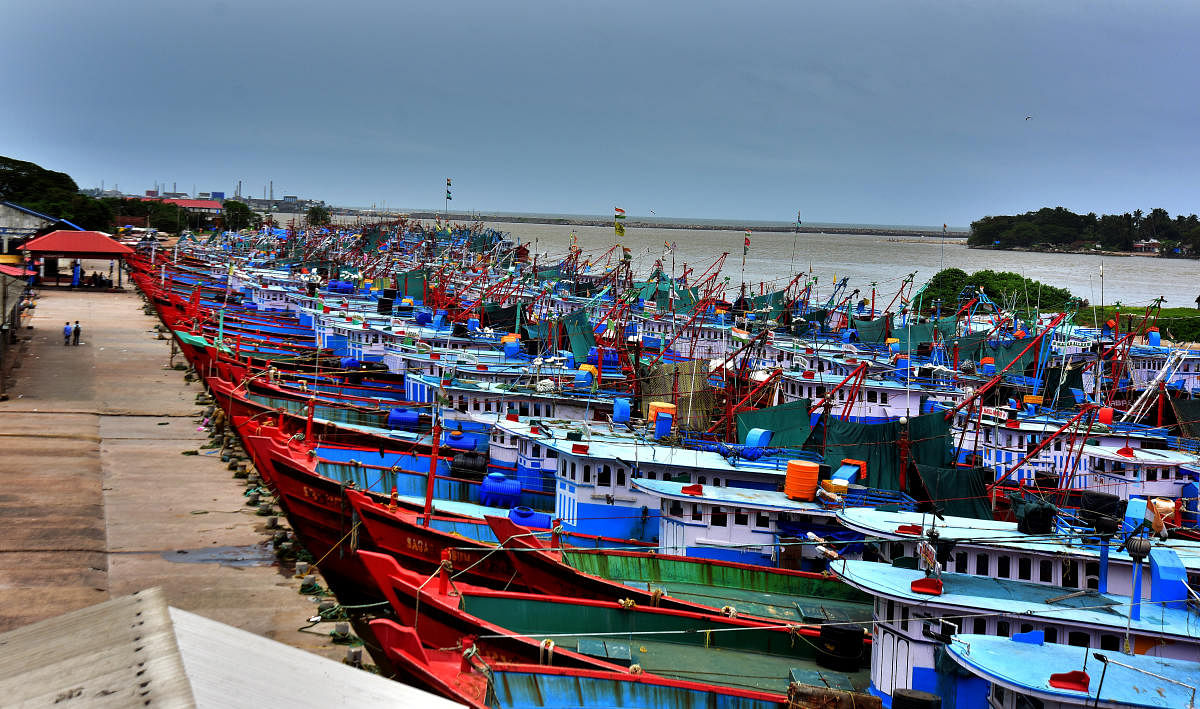
Unsustainable and illegal fishing practices are having an impact on the total fish catch in coastal Karnataka, with both small fishermen and large trawler operators worried over the trend that could get worse in the age of climate change.
For example, data from the fisheries department shows that the total catch in Udupi district has come down from 21,276 metric tonnes in November 2021 to 17,994 metric tonnes in March this year. In Uttara Kannada, the figure has reduced from 1.22 lakh metric tonnes in 2019-2020 to 1.17 lakh metric tonnes in 2021-22.
The reduced catch is reflected in the price of fish. In Udupi, mackerel costs Rs 170 to 180 per kg now compared to Rs 100 a few months ago. Another widely consumed fish sardine costs between Rs 120 and 130 per kg, while pomfret costs between Rs 500 and Rs 600 per kg compared to Rs 400 a few months back.
Udupi fisherman Hiriyanna Kidiyur blames the practice of mechanised fishing for the dwindling catch.
Earlier, said Hiriyanna, the post-monsoon period brought in substantial income following the 60-day fish ban in June. But that is no longer guaranteed.
“Generally, better catch can be expected a few months after the ban is lifted. However, now it begins to fluctuate after November,” he said.
There are other problems, too.
Fishing illegally during the breeding season, which has increased during the last 4-5 years, also depletes the fish population.
Then there is rampant use of trawlers. “Trawling sweeps the ocean floor, taking everything with it,” said Hiriyanna.
Some fishermen indulge in ‘light fishing’, which involves attaching strong LEDs to the ends of nets to attract fish. Though prohibited since 2016, ‘light fishing’ and bull trawling are extensively practised during the fishing season.
Authorities say the ban has had little impact. “We are trying our best to stop them,” said Kavitha R K, Uttara Kannada’s assistant deputy director of fisheries.
There are 1,124 motorised mechanical fishing boats in Udupi district, 7,707 non-motorised boats and 3,822 motorised non-mechanical boats.
But these are just the registered ones. Every year, around 100-125 boats start fishing, of which many are unregistered.
All of these exploitative practices as well as rising pollution in turn impact phytoplankton production, which is the main food source for various pelagic species in the ocean, including sardines.
Check out the latest videos from DH: